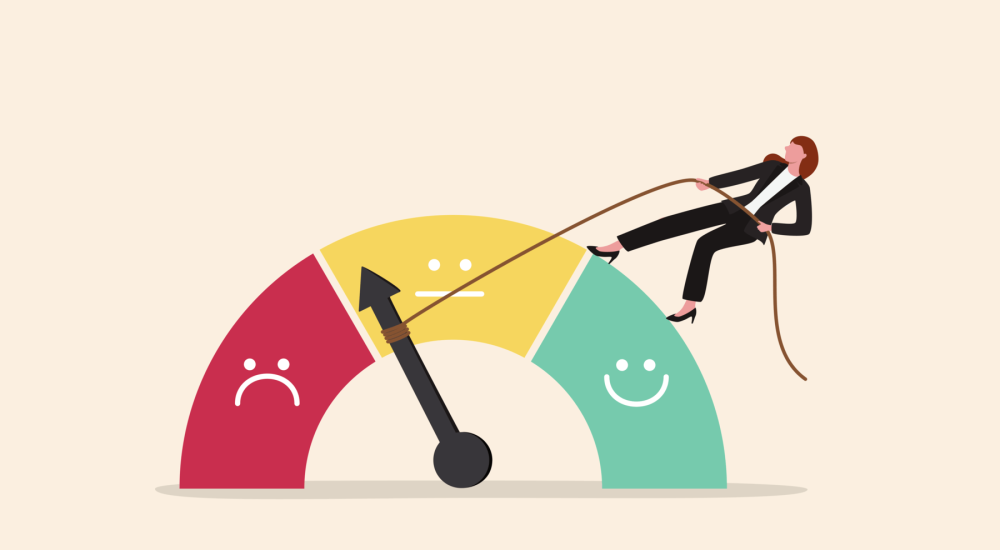Here at Leadingham Rodgers, our CPAs like to preach that, when change comes, successful individuals…

Top Tips for Improving Your Credit Score from Our CPAs
Credit scores can certainly seem mystifying. They’re a unique combination of the data analytics efforts of 3 major credit reporting agencies: Experian, Equifax, and TransUnion (or Dun & Bradstreet for businesses). Each of these companies gathers data about your credit history, analyzes your financial creditworthiness, and tells lenders how likely you are to repay your debts in the form of a FICO® score from 300 to 850.
Nobody can opt out of having their credit history rated on this scale, yet it’s a critically important aspect of financial health for businesses and individuals alike. Improving your credit score can mean the difference between securing a business loan, getting a mortgage, or purchasing a big-ticket item to expand your earnings—or your family. So, how can you take control of your credit score and make it work for you? Let’s dive in!
Why Knowing Your Credit Score is Important
Keeping an eye on your credit score gives you a greater understanding of what potential lenders are going to see if you need to apply for a loan or credit card. Watching it over time can help you catch any inaccuracies or signs of identity theft. It can also help you plan to improve your credit ahead of a big event, such as buying a house or acting on an important capital expenditure.
Your credit score doesn’t just determine whether or not a lender will agree to loan you money. It can also determine your interest rate for repaying what you owe. Generally speaking, the better your score, the less you’ll have to pay over time.
What credit score do you start with?
Before you start building credit, you don’t have a score at all. It isn’t zero or even 300 (the lowest possible)—it simply isn’t. Once you open your first line of credit, you’ll get a score, which will likely be somewhere between 300 and 850, depending on your unique circumstances. Scores are calculated based on:
- Your track record of making regular, on-time payments
- How much debt you’ve accumulated
- Your credit utilization ratio (how much money you owe compared to your available credit)
- The mix of loan types you have (such as credit cards, car loans, mortgages, etc.)
- The length of your credit history (also called credit age)
How to Check Your Credit Score
There are many ways to check your credit score for free. Some methods of checking will lower your score—these are known as hard inquiries, which are used any time you apply for a new line of credit or a credit line increase. But personal reviews (or soft inquiries) won’t affect it, and you should never have to pay for your scores. Instead, try one of these options:
- Ask your financial institution about credit monitoring and reporting. Most big names in banking provide this service to their customers for free.
- Request a free credit report from the Annual Credit Report Request Service online or via phone call. Through December 2023, you are entitled to free weekly reports.
- Use a reputable online credit monitoring service such as Credit Karma.
Tips for Improving Your Credit Score
Always Make Payments on Time
Making your credit card or loan payments on time is the single most important factor in your credit score. It’s best not to carry too much debt, but making the minimum payment on time is better than missing it, especially by more than 30 days. Late payments of 30 days or more can drop your score by up to 100 points and stay on your credit report for more than seven years.
Individuals should set up reminders or automatic payments to never miss a due date. Businesses should consider streamlining their bill payments, either through an upgraded accounting system or working with a Certified Public Accountant (CPA).
Manage Your Credit Utilization
The second most important factor in your credit score is your credit utilization ratio, which is typically represented as a percentage. The lower your balance, the higher your score is likely to be, because it shows lenders that you’re being responsible and spending within your means. Typically, you should use less than 30% of your credit card limit on any given card.
Smart ways to manage this ratio include paying several times throughout the month, paying off your balance before the billing cycle ends, or asking your creditor for a higher credit limit. You’re more likely to receive an increased limit if you’ve recently gotten a raise or have had a good track record with that card for a few years.
Discuss Debt Management Options with Your CPA
Whether you’ve gotten behind on your bills due to illness or job loss, or you aren’t sure how to pay down your accumulated debt, a CPA can help. Debt management is just one of the many things we do for our clients here in Montgomery, both on a personal and business level. We can help you choose the right steps for your situation, from getting you on a good schedule to negotiating with your creditors, and ultimately improving your credit score.
Get Smart About Your Credit with Leadingham Rodgers
Credit scores are a fact of life. But instead of seeing them as a millstone around your neck, you can take control and turn them into valuable assets. As Montgomery’s trusted accounting firm, Leadingham Rodgers is ready to help clients manage their debt, set up a responsible credit history, and rehabilitate their financial health for the long term.
Your Reliable CPAs in Montgomery, AL
Leadingham Rodgers’ CPAs have deep roots in the community here in Montgomery. We’re committed to helping all our friends and neighbors in the area take control of their financial situations. Whether you need business accounting, personal tax help, consulting, or something totally unique, our team is ready to use our expertise to help. Call us today at (334) 721-2548 or reach out online for more information.

